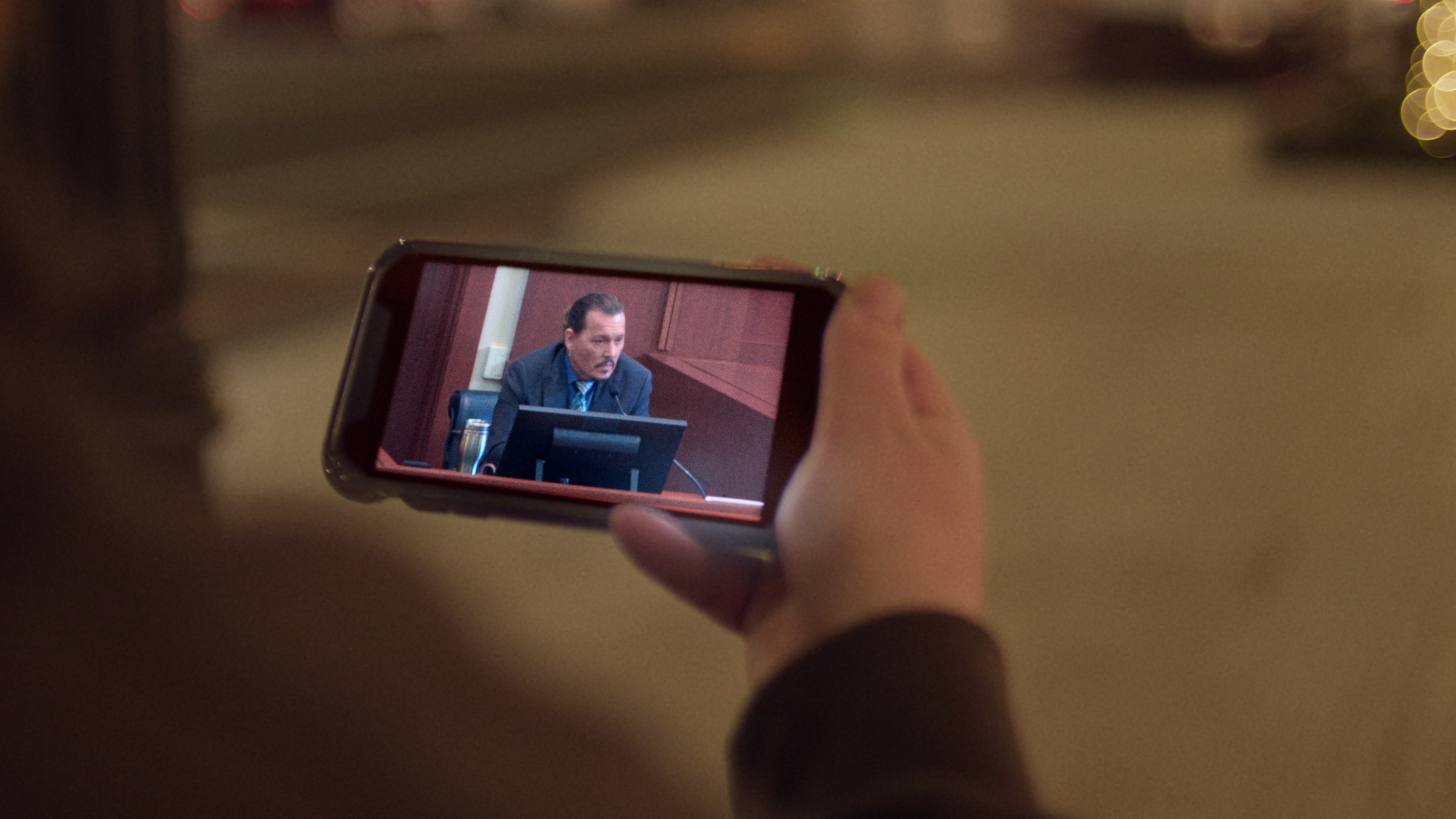Before the jury delivered a unanimous decision in favor of actor Johnny Depp in his defamation case against his ex-wife, Amber Heard, she had already lost. Netflix’s latest documentary series, Depp v. Heard, which unpacks the six-week trial over three episodes, traces the negative social media attention and online hatred for Heard that dominated the internet—and potentially impacted the trial's end result.
The defamation trial came after Heard wrote an op-ed in 2018 for The Washington Post alleging she was a victim of abuse. Though she did not mention Depp by name in the article, the timeline she noted matched with the timeline of her marriage in 2015 to Depp and Heard filing for divorce in 2016. Depp and Heard went to court in the United Kingdom in 2020 in a separate libel case, after Depp sued the publisher of The Sun over an article in the tabloid, resulting in a win for Heard. In 2022, Depp sued Heard for defamation, claiming $50 million in damages; Heard filed counterclaims for $100 million in damages from Depp. The trial began on April 11, 2022 in Fairfax, Virginia. Because the state of Virginia and the trial’s judge permitted cameras in the courtroom, every moment of the trial was televised, contributing to an online frenzy that only grew more intense as the weeks went on.
On June 1, the jury’s unanimous verdict was in favor of all three defamation claims made by Depp; and one for Heard. Depp released a statement, writing, “The jury gave me my life back. I am truly humbled.” Heard released a statement, writing, “I am sadder still that I seem to have lost a right I thought I had as an American– to speak freely and openly.” In December 2022, both parties reached a settlement where Depp would receive $1 million from Heard.

How Depp v Heard became an internet trial
Like O.J. Simpson’s infamous murder trial in 1995, Depp and Heard’s trial became a closely watched and widely discussed media sensation. But it had an added element that Simpson’s did not: the scale of social media. Depp v Heard reveals how several content creators made the trial a major online story of its own, while growing their follower and view counts on YouTube and other platforms by making videos and giving commentary. Overwhelmingly, the new ecosystem of online commentators spoke out in support of Depp, while accusing Heard of “putting on an act” during her testimonies.
YouTube channels like The DUI Guy and DARTHNEWS, who were both in support of Depp, are seen in the documentary making videos about their experiences physically getting inside the Fairfax County courtroom; pro-Depp channels like Popcorned Planet live streamed their reaction to the hours-long trial while receiving donations from viewers.
Memes about the trial started to go viral, from remix videos of Depp referencing his “mega pint” of wine while on the stand to parodies about Depp claiming Heard left her “human fecal matter” on his bed, to the hours-long trial getting condensed to thousands of short second-long clips that received millions of views. Depp v. Heard shows how almost all of this content was in favor of Depp and much of it came from creators who had a direct incentive to make it for online clout and potential monetary gain.
At its height, the hashtag #JusticeForJohnny had 20 billions views on TikTok; #JusticeForHeard only had 7.5 million views, according to the documentary.
Heard was aware of the online hate. The series shows a moment in the courtroom when she says, “You can look either of us up online and see which one of us is being abused.”
Did the online frenzy shape the Depp v Heard case?
The overwhelming response for Depp was hard to ignore for the millions of Americans witnessing the frenzy, and was likely hard for even the jurors of the trial to avoid. In the weeks leading to their decision the jury was instructed by the judge to not interact with any form of media in their off hours. But the jury was not fully secluded and had a 10-day break mid-trial during which, according to the documentary, it is possible that they interacted with people who were aware of the media and online attention the trial was receiving.
After the vitriol Heard faced, speculation grew online about whether the jury would have been able to avoid the overwhelming public opinion of the trial. Depp’s lawyer, Camille Vasquez, who became an online figure herself, debunked these claims, along with speculation that online hate for Heard was through the purchase of bots, in an interview with NBC’s Savannah Guthrie, calling them “Categorically false.”
Heard, during a separate interview with Guthrie, said, “Even if you think that I’m lying you still couldn’t look me in the eyes and tell me that you think on social media there’s been a fair representation and the jury is not immune to that … even the most well intentioned juror, it would have been impossible to avoid this.”
More Must-Reads from TIME
- Caitlin Clark Is TIME's 2024 Athlete of the Year
- Where Trump 2.0 Will Differ From 1.0
- Is Intermittent Fasting Good or Bad for You?
- The 100 Must-Read Books of 2024
- Column: If Optimism Feels Ridiculous Now, Try Hope
- The Future of Climate Action Is Trade Policy
- FX’s Say Nothing Is the Must-Watch Political Thriller of 2024
- Merle Bombardieri Is Helping People Make the Baby Decision
Write to Mariah Espada at mariah.espada@time.com